Eczema, also known as atopic dermatitis, is a chronic skin condition that can cause persistent skin dryness and itchiness, which can result in scaling and blistering.
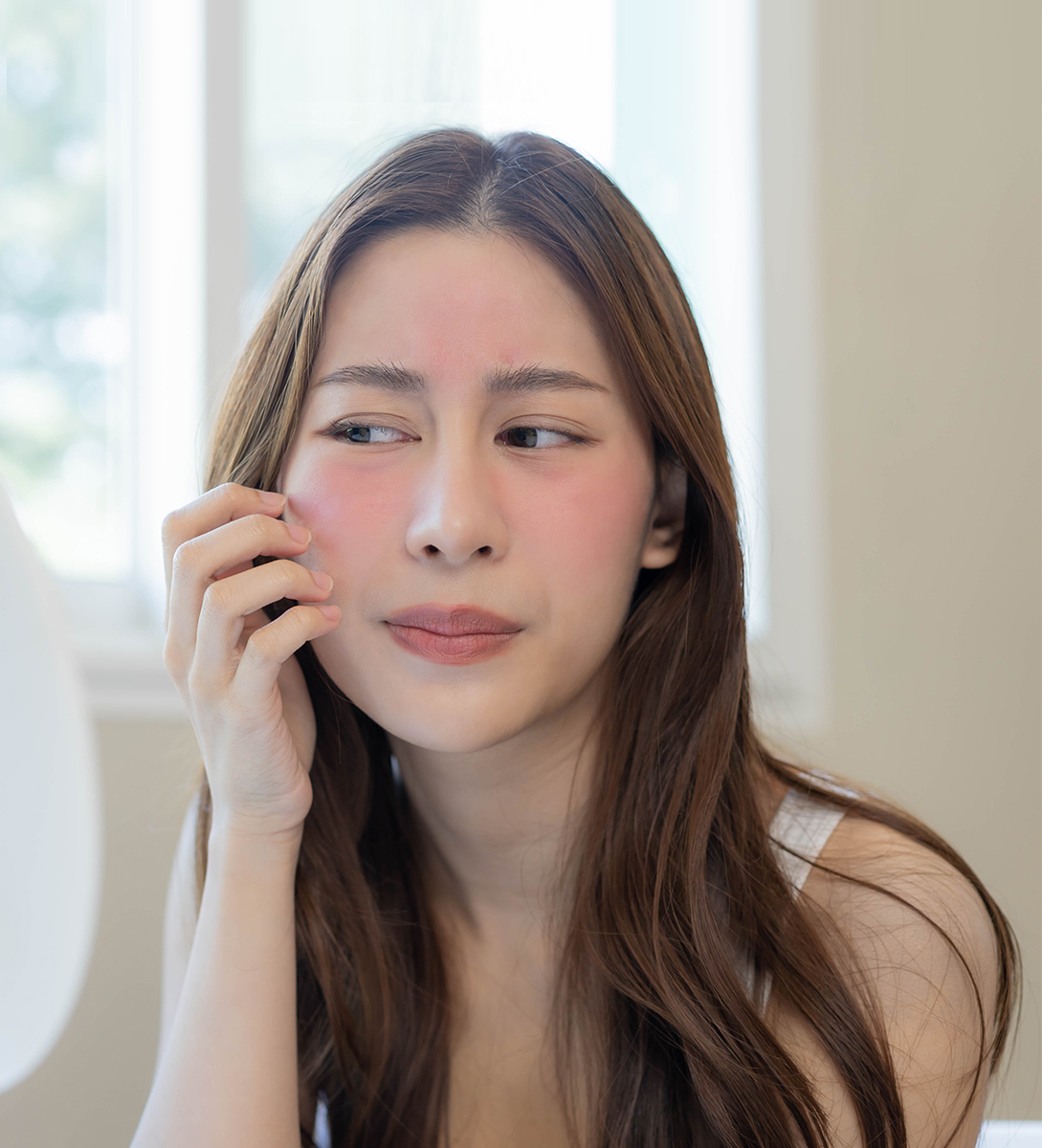
TREATMENT FOR SENSITIVE SKIN
Struggling With Recurring Flare-Ups & Skin Discomfort?
Understanding Skin Sensitivity
Sensitive skin is a common condition characterised by increased sensitivity to irritants, which may lead to redness, itching, dryness, tightness, prickling and discomfort. Identifying the root cause is crucial for treating sensitive skin.
Genetics
Environmental Factors
Skincare Products
Medical Conditions
Stress
Signs of Sensitive Skin
Understanding your skin symptoms is essential for choosing an effective treatment, ensuring optimal results, as well as a smoother and refined complexion.
Eczema
Rosacea
Rosacea is a chronic inflammatory condition that can result in pustules, flushing, and visible blood vessels. Unlike eczema, rosacea usually occurs on the cheeks and bridge of the nose.
Other Skin Sensitivity
Sensitive skin may also show signs like rashes when exposed to irritating chemicals or physical agents that damage the skin layer or an allergic or immune reaction to irritating substances.
Find The Right Treatment For Sensitive Skin
Unlock newfound confidence with our sensitive skin facial treatments that aim to address common skin concerns such as rosacea, sensitivity, and eczema. Our treatments offer a soothing and rejuvenating experience, which aims to reduce redness, inflammation, and discomfort while promoting a healthy and balanced complexion.
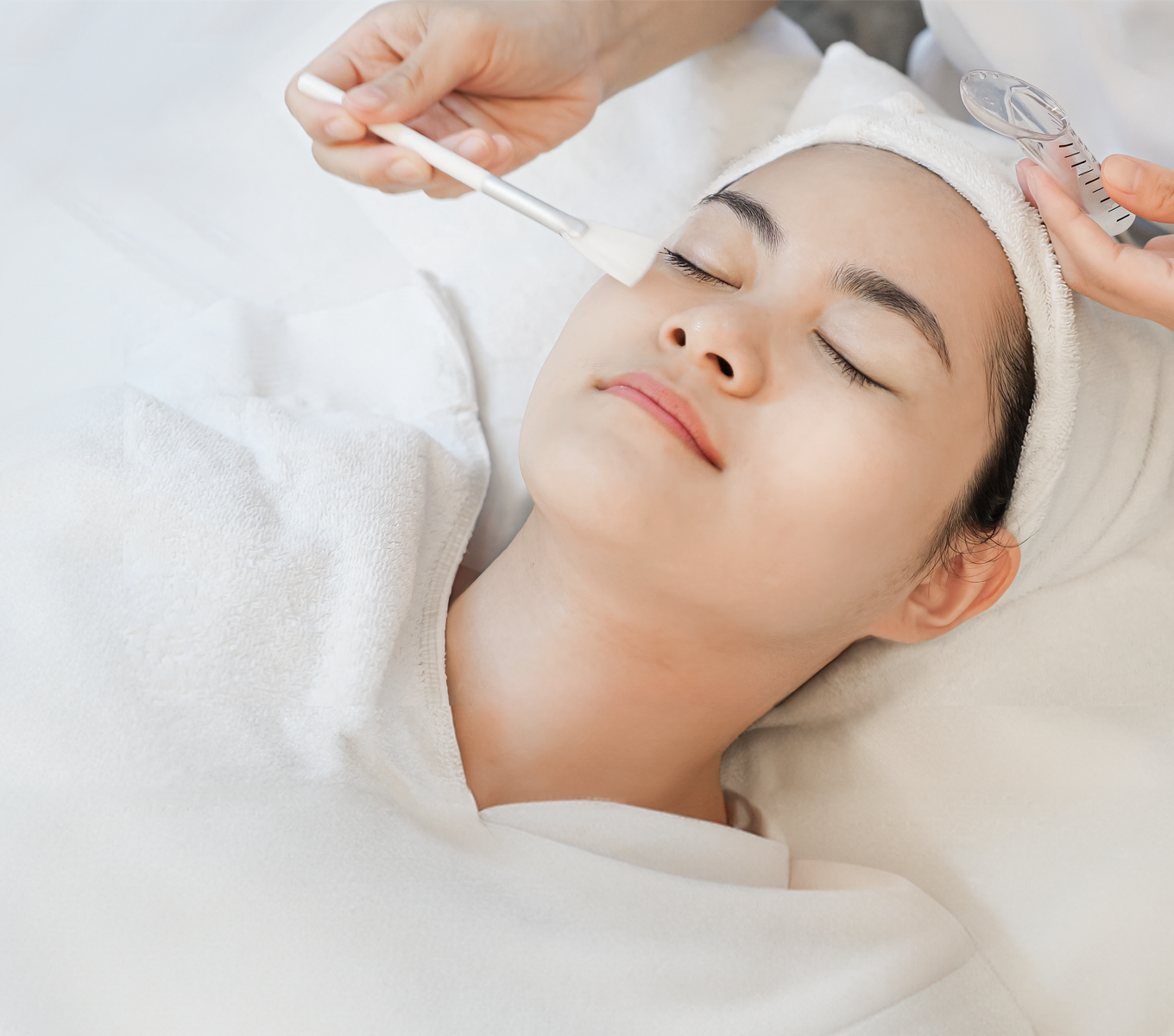
LumiCare Peel Treatment
$196.20 w/GST
(Trial @ $98.10 w/GST)
45mins

Rosa C3 Treatment
$324.82 w/GST
(Trial @ $162.41 w/GST)
90min
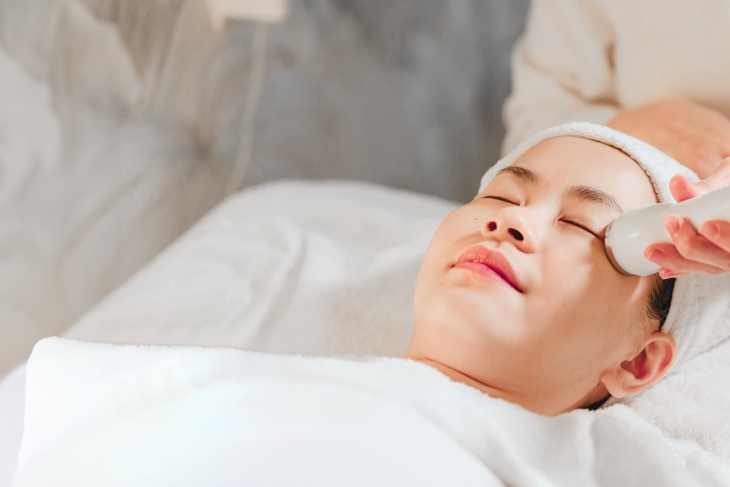
Oxyvital Treatment
$324.82 w/GST
(Trial @ $162.41 w/GST)
75min
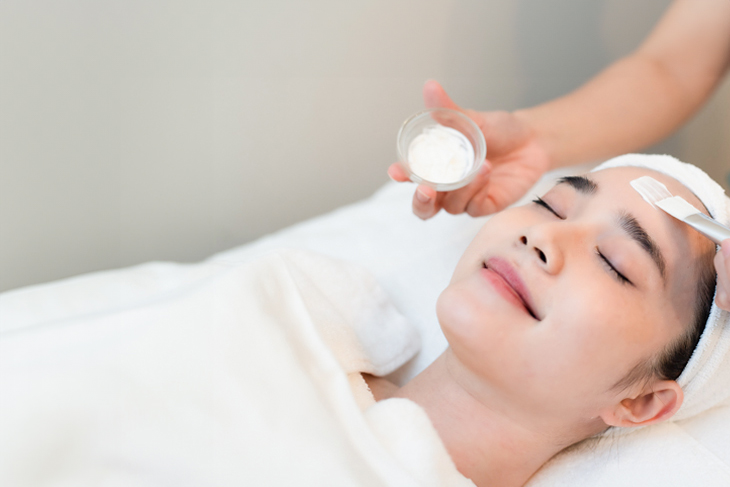
SensiVital Plus Treatment
$272.50 w/GST
(Trial @ $136.25 w/GST)
90min
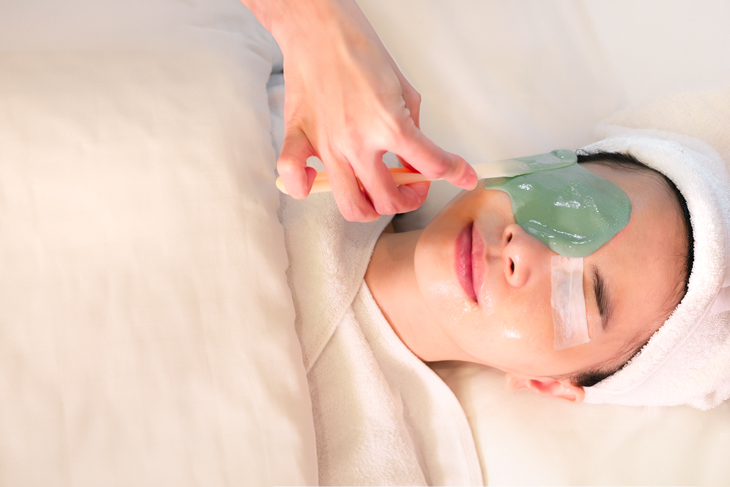
Probiotic Treatment for Sensitive Skin
$324.82 w/GST
(Trial @ $162.41 w/GST)
90min
Over 7000+ 5-Star Reviews
"Delivering happiness, sensitive to your needs" – our motto in treating each and every one of our valued clients to ensure 100% customer satisfaction. We are proud that Caring Skin has emerged as Singapore's top-rated facial spa, loved by clients.
Help & Support
Sensitive skin often manifests as redness, itching, burning, or dryness. It can feel tight or uncomfortable, and you might notice a tendency to flush easily.
It’s best to opt for products specifically designed for sensitive skin. Look for gentle, hypoallergenic, and fragrance-free options. Always patch-test new products and introduce them gradually into your routine.
Start by using a mild, hydrating cleanser and a gentle moisturizer. Avoid hot water and harsh exfoliants. Consider products with ingredients like aloe vera, chamomile, or colloidal oatmeal to calm irritation.
Yes, but it’s essential to inform your skincare specialist about your sensitivity. At Caring Skin, we offer treatments like the SensiVital Plus designed specifically for sensitive skin. Our esthetician will ensure your comfort and safety throughout the process.
Patch-testing is the best way to check a product’s compatibility with your skin. Apply a small amount to a discreet area and monitor for any adverse reactions for a few days.
Absolutely. Identifying triggers, using gentle products, and seeking professional guidance are essential steps. With proper care, many of our customers successfully manage sensitive skin.
A balanced diet rich in antioxidants and essential fatty acids can support skin health. Drinking enough water and avoiding excessive alcohol and caffeine intake can also help maintain skin hydration and reduce sensitivity.
Sensitive skin can be caused by a variety of factors, including genetics, environmental factors, skincare products, and underlying medical conditions. Rashes and breakouts can occur when the skin’s natural barrier is compromised, allowing irritants to penetrate and cause inflammation. Common irritants that can trigger rashes and breakouts in sensitive skin include fragrances, preservatives, sulfates, and harsh exfoliants.
In addition to irritants, environmental factors such as pollution, UV radiation, and harsh weather conditions can also weaken the skin’s barrier and cause sensitivity. People with a family history of sensitive skin may be more predisposed to developing the condition themselves. Medical conditions such as eczema, rosacea, and psoriasis can also cause skin sensitivity and irritation, leading to rashes and flare ups.
To prevent rashes and breakouts caused by sensitive skin, it is important to identify and avoid triggers that can irritate the skin. Using gentle, fragrance-free skincare products and avoiding harsh exfoliants can also help to reduce skin sensitivity and prevent further damage.
Preventing recurrent rashes and flare ups caused by sensitive skin requires a comprehensive approach that addresses the underlying causes of the condition. Avoiding irritants, using gentle skincare products, and seeking medical treatment for underlying skin conditions can all help to reduce skin sensitivity and prevent further damage. Additionally, adopting healthy lifestyle habits such as stress management, proper nutrition, and regular exercise can also promote overall skin health and reduce sensitivity.
One effective way to prevent recurrent rashes and flare ups caused by sensitive skin is to use gentle, fragrance-free skincare products that are formulated for sensitive skin. Look for products that are free of harsh chemicals and preservatives, and avoid using abrasive exfoliants that can irritate the skin. It is also important to avoid over-cleansing or over-exfoliating the skin, as this can strip away the skin’s natural oils and lead to further irritation.
In addition to using gentle skincare products, it is important to protect the skin from environmental factors that can trigger sensitivity. This can include wearing protective clothing and using sunscreen to shield the skin from UV radiation, and avoiding pollution and other environmental irritants whenever possible.
People with a family history of sensitive skin may be more predisposed to developing sensitive skin conditions. This is because genetics can determine how sensitive the skin is, as well as how quickly it reacts to irritants. Additionally, certain genetic mutations have been linked to skin conditions such as eczema and rosacea, which can cause sensitivity and inflammation.
However, genetics is just one factor that can contribute to the development of sensitive skin. Environmental factors such as pollution and UV radiation can also weaken the skin’s barrier and cause sensitivity, while skincare products and underlying medical conditions can also trigger sensitivity in the skin. This would generally affect collagen production and the elasticity of one’s skin.
If you have a family history of sensitive skin, it is important to be mindful of your skin’s reaction to various triggers and to seek medical advice if you experience recurrent rashes or breakouts. Using gentle, fragrance-free skincare products and adopting healthy lifestyle habits can also help to reduce skin sensitivity and prevent further damage.
Environmental factors can play a significant role in triggering sensitivity in the skin. Pollution, UV radiation, and harsh weather conditions such as extreme temperatures and low humidity can all weaken the skin’s natural barrier and cause sensitivity. Pollution in particular can lead to inflammation and oxidative stress, which can damage the skin’s protective barrier and cause sensitivity. Sun exposure can also cause damage to the skin’s DNA, leading to premature aging, sunburn, and sensitivity.
In addition to external factors, internal factors such as stress can also trigger sensitivity in the skin. Psychological stress can have a physical impact on the body, including the skin, and can lead to increased sensitivity and irritation. Stress hormones such as cortisol can affect the skin’s barrier function, making it more susceptible to sensitivity. Stress can also cause inflammation, which can lead to redness and itching.
Certain ingredients in skincare products can irritate sensitive skin and cause rashes, redness, and itching. Fragrances, preservatives, and sulfates are some of the common irritants found in skincare products that can trigger sensitivity. Harsh exfoliants and abrasive scrubs can also cause dead skin cells, leading to sensitivity. Even natural ingredients such as essential oils can cause sensitivity in some people.
To avoid irritating the skin with skincare products, it is important to read product labels carefully and choose gentle, fragrance-free, and non-comedogenic skincare products if you have sensitive skin. Look for products that are formulated specifically for sensitive skin, and avoid ingredients that are known to be irritants. It is also important to patch-test new skincare products before using them on your face, to ensure that they do not cause irritation or sensitivity.
Yes, stress can contribute to the development of sensitive skin. Psychological stress can have a physical impact on the body, including the skin, and can lead to increased sensitivity and irritation. Stress hormones such as cortisol can affect the skin’s barrier function, making it more susceptible to sensitivity. When cortisol levels increase in the body, it can lead to inflammation and oxidative stress, which can weaken the skin’s natural defenses and cause sensitivity.
Stress can also affect the skin’s microbiome, which is the collection of microorganisms that live on the skin’s surface. The microbiome plays a critical role in maintaining the skin’s health and vitality. When stress disrupts the balance of the microbiome, it can lead to inflammation and sensitivity. Stress can also cause a decrease in blood flow to the skin, which can lead to a lack of oxygen and essential nutrients, making the skin more vulnerable to damage and sensitivity.
To manage stress and prevent its impact on the skin, it is important to adopt healthy lifestyle habits such as exercise, meditation, and deep breathing. These relaxation techniques can help to reduce stress levels and promote a sense of calm and relaxation. Practicing good sleep hygiene and eating a balanced diet can also help to support the skin’s health and reduce sensitivity. At Caring Skin, we understand the impact of stress on the skin and are committed to providing personalized skincare solutions that help to manage and prevent sensitivity caused by stress.
One effective treatment for sensitive skin is the use of gentle, fragrance-free skincare products. Products containing harsh chemicals, fragrances, and dyes can irritate the skin and cause sensitivity. Switching to gentler products that are specifically designed for sensitive skin can help to reduce inflammation, redness, and itching. These products should be free from alcohol, sulfates, and other irritants that can strip the skin of its natural oils and cause dryness.
Another effective treatment for sensitive skin is the use of topical creams and ointments that contain anti-inflammatory ingredients. These products can help to reduce redness, itching, and inflammation, and can be especially beneficial for those with eczema or rosacea. Topical corticosteroids, such as hydrocortisone cream, can also be used to reduce inflammation and itching in cases of acute sensitivity.
In addition to topical treatments, some facial treatments can help to both soothe sensitive skin and reduce sensitivity in the skin.
At Caring Skin, we offer several specialized facials for sensitive skin, including the Rosa C3, Probiotic Treatment, and OXYVITAL. These treatments are designed to address specific skin concerns, such as rosacea, sensitivity, and eczema, and can help to reduce inflammation, decrease sensitivity, and promote a healthy, balanced complexion.
Book An Appointment
Take the first step towards clearer, healthier skin by booking an appointment with our experienced team at Caring Skin.
